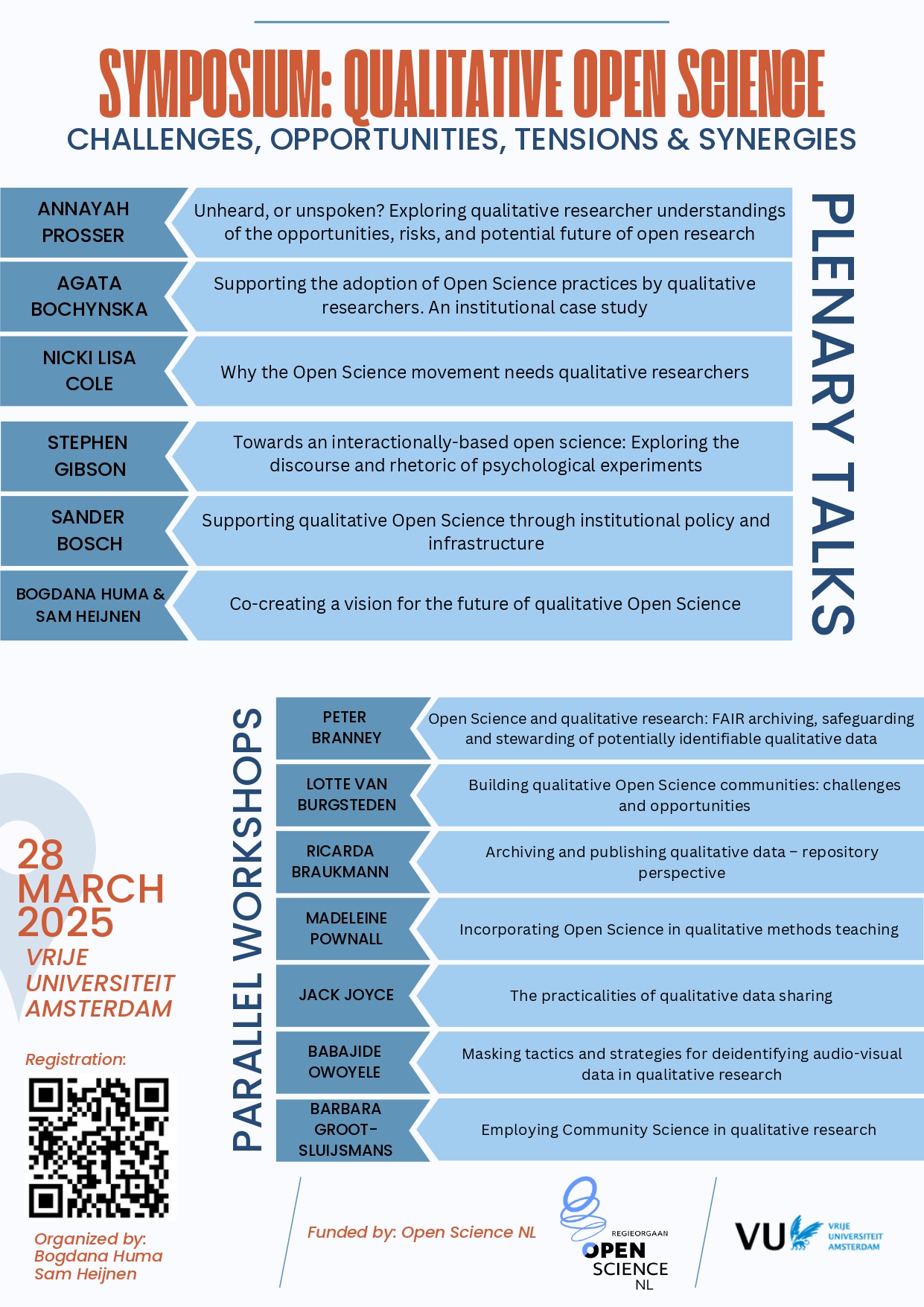Upcoming Events
This is a page dedicated to highlighting upcoming events in our community.Would like your event to be featured here? Email us or dm us on LinkedIn!
Collaborative Mapping of Responsible Conduct of Research Challenges and Dilemmas: A Participatory Exercise
EVENT DETAILS
Save-the-dates!
🗓 14th October 2025: 13:00-17:30 (walk in lunch from 12:00)
🗓 2nd December 2025 9:30 – 13:00 (walk in coffee at 9:00)
📍 Location: Amsterdam UMC (location VUMC) – Van der Boechorststraat 7, 1081 BT Amsterdam
You’re Invited: Join Us in Mapping Research Integrity Challenges Together
Join us for a unique, collaborative session co-organized by the Center for Research Integrity and Open Science (RIOS). This event brings together researchers from VU Amsterdam and Amsterdam UMC to explore and map the real-world challenges and dilemmas we face in practicing responsible conduct of research (RCR).
This is your opportunity to contribute to a collective reflection on the ethical tensions we encounter in our daily work and help shape a more supportive and open research culture.
Open to all disciplines and career stages.
Your experience matters—come share it!
When
Day 1: 14th October 2025: 13:00-17:30 (walk in lunch from 12:00)
Day 2: 2nd December 2025 9:30 – 13:00 (walk in coffee at 9:00)
Location: Atrium Room, Amsterdam UMC (location VUMC) – Van der Boechorststraat 7, 1081 BT Amsterdam
🔍 What’s This All About?
This initiative aims to:
- Create a safe space for open dialogue about ethical challenges in research.
- Foster a culture of reflection and openness across disciplines and institutions.
- Co-create a joint statement that captures shared themes and needs, to be presented to the executive boards of VU and Amsterdam UMC as a foundation for future support, policy development and publication.
🧭 What to Expect
The project unfolds in three phases:
Phase 1: In-Person Dialogue (Day 1)
Join a small, facilitated group session (max. 20 participants) to reflect on real-life dilemmas you’ve encountered. Using the “Middle Position” method, we’ll ensure a respectful, confidential, and constructive environment. Together, we’ll identify common themes and share them in a plenary session.
Phase 2: Collaborative Drafting
Based on the themes from Phase 1, the research team will draft a joint statement. You’ll be invited to review and refine it—anonymously or as a credited contributor.
Phase 3: Final Reflection & Next Steps (Day 2)
Two months later, we will reconvene for a second in-person session to discuss the draft, gather final feedback, and explore how to move forward with the statement and its recommendations.
🤝 Why Participate?
- Contribute to a meaningful dialogue on research integrity.
- Help shape institutional support for ethical challenges in research.
- Be part of a cross-disciplinary, cross-institutional initiative that values your experience and insights.
Participation is voluntary, and you can withdraw at any time. All data will be handled with strict confidentiality, and no recordings will be made during the sessions. Detailed information about the project, along with an informed consent form, will be provided to all participants in advance.
📅 Ready to Join?
If you’re interested or have questions, please register via this link: REGISTRATION
Let’s work together to build a more ethically aware and supportive research environment—one conversation at a time.
Empowering Master’s Students Toward Responsible Decision Making – A Discussion Series
🎓 Thinking About a PhD? Let’s Talk About the Real Story 🎓
Starting a PhD can be exciting… but also challenging. Many Master’s students don’t get the full picture before deciding—especially if they haven’t done a research internship. What’s it really like to work in academia? What are the expectations, responsibilities, and realities beyond the degree?
We’re here to help you make an informed decision.
Join one of our 4 informal discussion sessions with PhD candidates from across VU Amsterdam and AmsterdamUMC.
Here’s what to expect:
- Real experiences from current PhDs on supervision, career paths, mental health, well-being, and social safety.
- Small-group discussions where you can ask anything—no question is off limits.
- Honest insights into what doing a PhD really means.
📅 Pick one date: October 13th, October 28th, November 17th, December 1st
📍 Location: VU
⏳ Format: Short intro talk → 3 PhD stories → Open group discussions
Make your PhD decision with clarity—not guesswork.
Sign up now: Use the QR code or the link to sign up for the date you wish to attend. Spaces are limited therefore we ask you to sign up as soon as possible.
If you have any questions about the workshop, please contact: b.leitner@amsterdamumc.nl or rita.santos@amsterdamumc.nl.

Amsterdam RepliClub – Bi-Monthly Meetings
The Amsterdam RepliClub seeks to contribute knowledge about the robustness of published research findings by conducting replications of published research for which the source data and analysis files producing the results reported are available.
We meet in-person biweekly (once every two weeks) on Mondays from 10:30-12:30, with our first meeting on 15 September.
At our meetings, participants will discuss a published paper and work together to examine its replication data and code.
Structure:
- Each meeting focuses on a single paper proposed by one of the members, and is screened beforehand by the organizers (Jack Fitzgerald and Rene Bekkers) to ensure that sufficient materials are available to enable a replication in a two-hour meeting.
- Participants suggest candidates for replication, try to reproduce the paper’s findings, carry out robustness checks, and discuss the quality of the paper’s data, code, and empirics.
If you’d like to join, please send an email to Krishma Labib, k.labib@vu.nl.
Qualitative Innovation in Action: Advancing Open Research Through Qualitative Methods – A Symposium
EVENT DETAILS
🗓️ 12th of December 2025
📍 Hybrid Event: onsite at Vrije Universiteit Amsterdam & online
What: This one-day event will feature four speakers that will showcase advances in Qualitative Open Research based on their own work. The symposium will comprise two hybrid plenary talks and two in-person interactive workshops that attendees can choose from.
Who:
- Chase Wesley Raymond (University of Colorado Boulder) – Conversation Analysis as an Inherently “Open” Research Method: Types and Contexts of Data ‘Replay-ability’
- Saul Albert (Loughborough University) – Creating a Minimal Open Science Resource on a Shoestring
- Uwe-Alexander Küttner (Leibniz-Institut für Deutsche Sprache (IDS)) – From Concept to Capture to Corpus: Creating Reusable Video Data for Qualitative Research
- Elizabeth Stokoe (The London School of Economics and Political Science (LSE)) – Doing Conversation Analytic Research in the Open
Registration (OPEN)
Participation is free-of-charge and lunch will be provided.

Qualitative Open Science: Challenges, Opportunities, Tensions, and Synergies
🗓️ 28th of March 2025 📍 Vrije Universiteit Amsterdam (VU Amsterdam) is organising the symposium “Qualitative Open Science: Challenges, Opportunities, Tensions, and Synergies”.
The one-day event, funded by Open Science NL will comprise plenary talks and interactive workshops on a variety of topics related to qualitative Open Science (see flyer).
Participation is free of charge 💸 and lunch will be provided 🌯
Register here ⬇️

Making scholarship look like the world looks: A workshop day on Openness, Equity, Diversity, and Inclusion in Academia
May 12th, 2025, Nijmegen
This workshop brings together knowledge and skills for a more inclusive, diverse, equitable and therefore more open academia. The values described in the UNESCO Recommendations on Open Science (OS) aim to ensure ‘equitable, fair and reciprocal access to science for all…’ and ‘embracing diversity of knowledge, practices, workflows, languages and research topics and outputs’. The research community is far from embodying these values in everyday research practices and work environments. Therefore, the goal of this workshop is capacity building by equipping participants with know-how to make their research, research support, or events (such as presentations, training, engagement activities) more open, participatory, and inclusive in the broadest sense of the word.
This workshop offers three different interactive sessions. You can participate in two (one before, and one after lunch). Each of the three sessions is led by two leads who will provide participants with background information and strategies to apply in their daily work.
1) Leveling the playing field for careers in science & measuring marginalization (Afreen Khalid, Ze Freeman)
This session focuses on learning from lived experiences navigating the research world as a woman and person of color. It will provide research based insights into how to support other people who have similar diverse backgrounds who want to have a career in science. The session will also explore how and whether to measure people’s experiences of disability and queerness for different purposes, sharing insights from another lived experience perspective on how data from marginalised identities can be collected considerately.
2) Equity, Diversity, & Inclusion in the research lifecycle (Thomas Gülzow, Hanne Zimmermann)
Ensuring diverse and inclusive representation throughout the research process is crucial. Key considerations include: Is the research team inclusive? Are the research participants representative of the population being studied? How can a researcher be reflexive and transparent about their positionality? To foster diversity and inclusion while adhering to Open Science principles, researchers can use add-ons for preregistration forms focusing on these goals. This session centres on leveraging preregistration to enhance research representativeness undefined.
3) Inclusive events, work environments and building ally skills (Esther Plomp, Melanie Imming)
It is essential to recognise that individuals with privilege can drive positive change, often with relatively lower risks than marginalised groups. For instance, they can actively contribute to inclusivity by developing ally skills. Members of the Open Science Communities, for instance, play an important role as change agents, leading by example and setting standards for inclusivity. Academics can use their power and influence to take meaningful action by knowing when to act as allies and how to organise inclusive, accessible events. This session focuses on practical information, tools and skills, to ensure that events, trainings and activities become more inclusive.
Apply for this workshop here:
Please note: We are committed to making this event accessible and welcoming to everyone. In the application form below you can let us know if there is anything we can do to support your participation (for example, assistive technology, mobility assistance, or quiet spaces). If your screen reader has problems with the embedded form below, you can go to the full-screen respondent experience via this link: https://6nwujj22sqm.typeform.com/to/sLTSd4Yw

Confronting Injustice through Open Science: Centering justice, equity, and decolonial approaches in research.
Join us for the Confronting injustice through Open Science symposium in Amsterdam !
About the Event:
In this symposium, we will explore how Open Science can help to fight injustice, by centering decolonial and anticolonial Open Science initiatives. Together, we aim to raise awareness about the neglect justice in mainstream Open Science practices and explore actionable pathways to embed justice and equity as fundamental values of Open Science.
For this, we will specially focus on three topics related to injustice and Open Science:
- Diamond open access publishing as an alternative to working with commercial publishers.
- Advocating for contextual , rather than absolute, openness as a means of centering justice.
- Expanding the definition of ‘science’ in Open Science to be more inclusive to diverse knowledge production approaches.
Event Details:
- Date: Thu, 13 March 2025
- Time: 09.30-16:30 (CEST).
- FREE registration.
- Location: Theater 5, NU, Vrije Universiteit Amsterdam, De Boelelaan 1105, 1081 HV Amsterdam, The Netherlands.
This symposium will take place in person in Amsterdam. It is also possible to register for online attendance only.
If you have any questions about the event, feel free to leave them in the ‘Questions’ section during registration. We will get in touch with you directly to provide the information you need.




